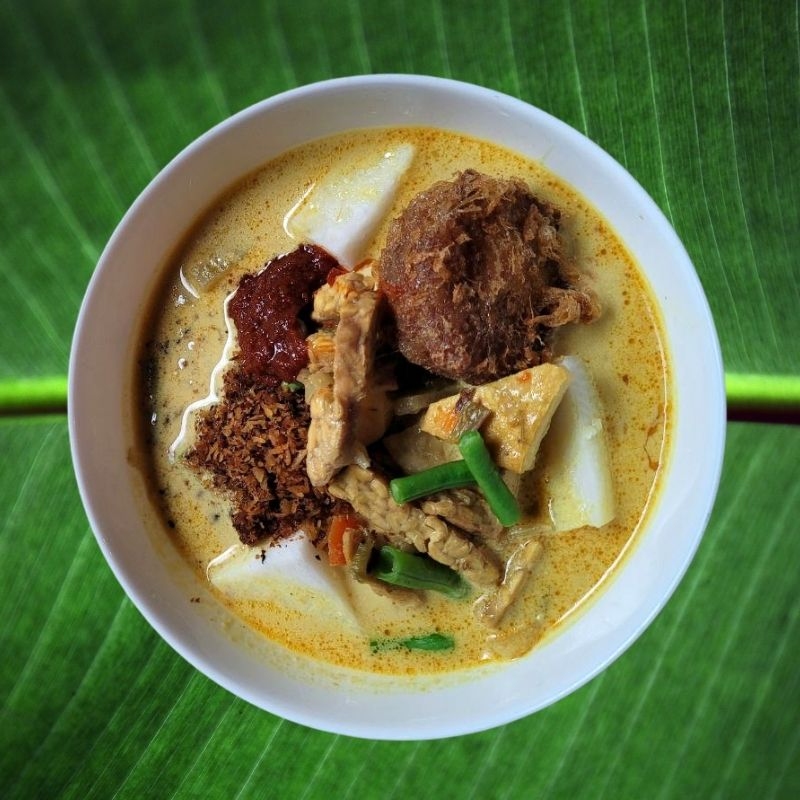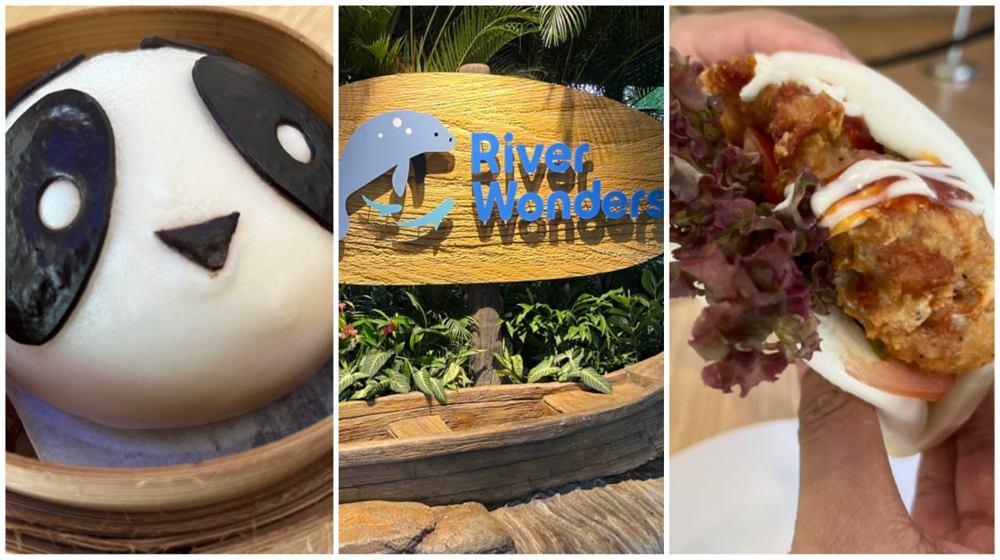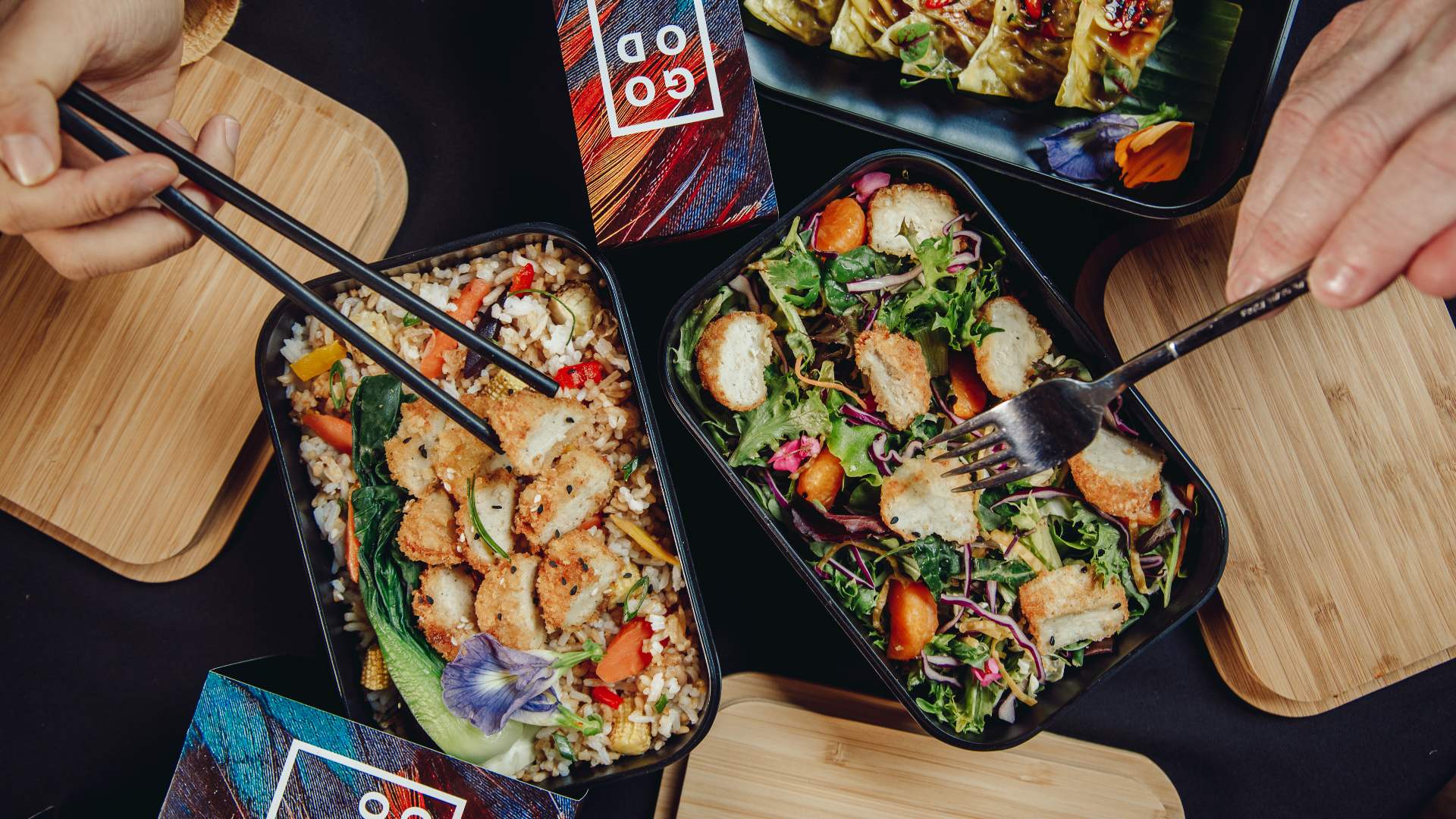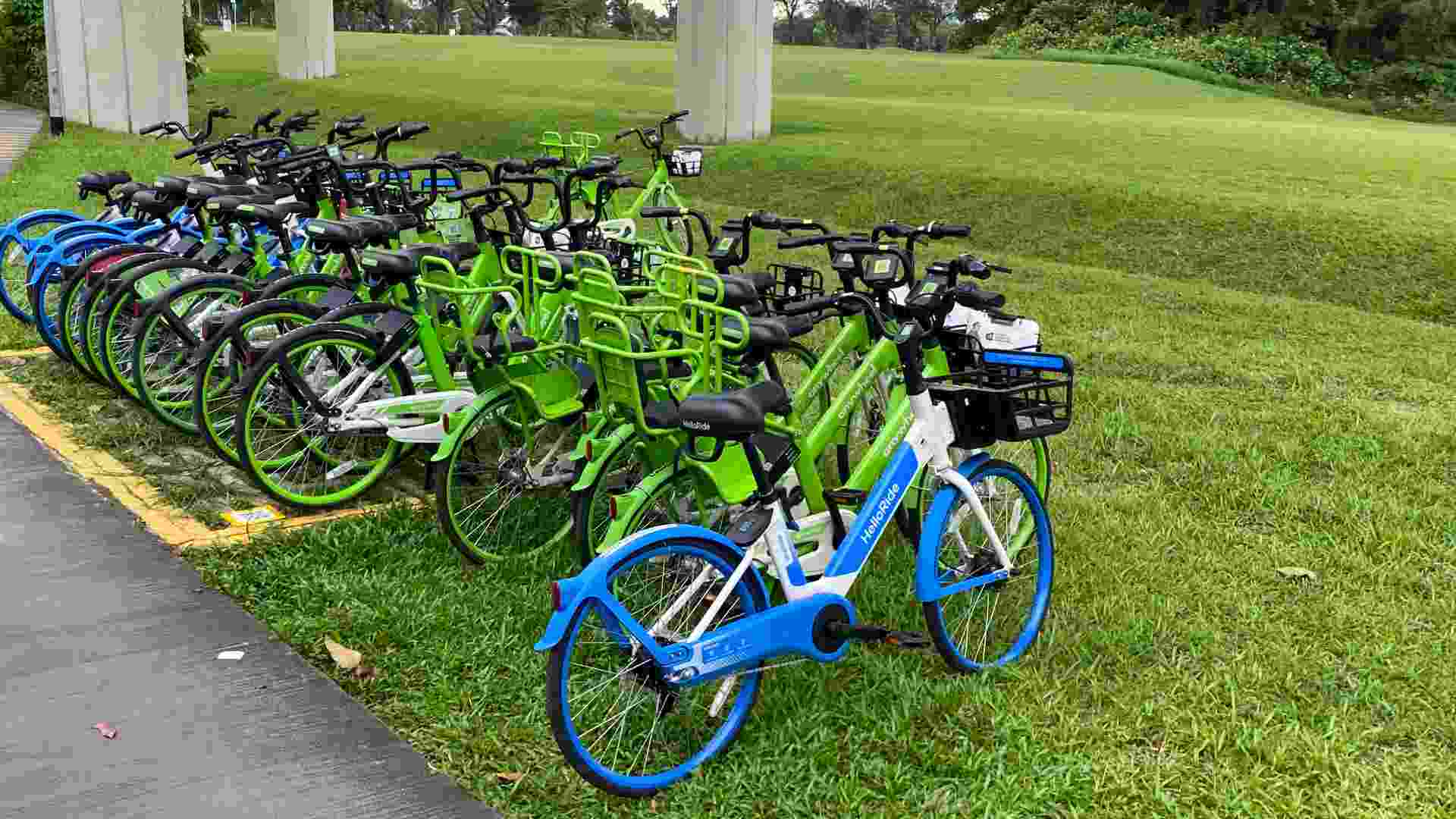Eat For The Earth: Meatless Meat And Plant-Based Food Options In Singapore
The next time you order in from Madame Fan at JW Marriot Singapore South Beach you might find yourself nibbling on cultured chicken when you pick a steamed chicken dumpling or a chicken salad.
Last May, the modern Cantonese restaurant became the first restaurant in the world to replace conventional chicken with Good Meat cultured chicken, even if it does so just once a week for take-outs.
What exactly is cultured chicken, you ask? It is, essentially, lab-grown meat that starts with a chicken’s stem cells, which can be taken from a live bird, a piece of meat, a cell bank, or the root of a feather.
The cells are fed nutrients like those found in soy and corn before being left to mature. Once enough muscle fibres have grown, you get meat that resembles chicken.
Good Meat is made by Eat Just, a food technology company that also created Just Egg, an egg product made entirely of plants. Singapore was the first country to approve Eat Just’s cultured chicken nuggets for sale under the Good Meat brand at the end of last year.
Culture vs killing
The draw of cultured meat is the fact that it is made without livestock farming or killing animals. In that way, it is both humane and better for our planet’s health.
Cultured meat is but the latest development in the burgeoning plant-based food industry that sees botanical products coaxed to the texture and likeness of meat.
Gone are the days when vegetarians had to settle for faux meats made from gluten or soy that bore almost no resemblance to the real stuff.
Today’s meatless meats harbour such an uncanny similarity to real meat that one vegetarian, upon tasting an Impossible burger for the first time, said, “I almost feel guilty eating it! It tastes so much like the real thing.”
What’s the beef?
The first, most impactful meatless meat product was the Impossible Burger, which mimics ground beef from cows and made its debut in 2016.
It smells, tastes, and cooks like ground beef, but the company says it is made mostly of water, plant proteins, sunflower oil, coconut oil, and heme (a molecule which contains iron that tastes similar to blood).
Though founded several years earlier, Beyond Meat, another company making plant-based meat alternatives, began to gain ground at around the same time.
In their early days, both Beyond Meat and Impossible Burgers could only be sampled at selected restaurants for almost the same price or sometimes more than dishes using real beef.
But fast-forward to today and Impossible burgers are available at mega fast-food chains like Burger King, while Beyond Meat is featured in Carl’s Jr, Subway and McDonald’s in the United States. Both products are now readily available in supermarkets in cities like Singapore and Hong Kong.
The proof is in the eating
With plant-based meats proliferating across Asia, now you can even sample plant-based yakiniku at Japanese-style grill restaurant Aburi-EN, where it will be available till July.
Created by Japanese alternative meat company Next Meats, the Next Kalbi (boneless short rib) is largely made from soy proteins and touted to have double the amount of protein and half the fat content of regular meat.
Grilled and served on a bowl of fragrant Japanese steamed rice, the plant-based kalbi tastes almost like real beef. For plant-based dieters who used to love yakiniku, this is yet another welcome dining option.
If, however, you want to try a swathe of plant-based offerings from around the world, there is the 3,000-square-foot Green Common in VivoCity. Founded by the Green Monday Group, who are behind Omn!Meat (another meatless meat brand), Green Common houses a dedicated area retailing products from brands like Heura Foods (known for its plant-based chicken), Unlimeat (a Korean sliced beef alternative), Beyond Meat, Omn!Meat frozen ready meals, and Alpha Foods vegan chicken nuggets.

Its adjoining Green Common café serves a menu that utilises said products in dishes like a Meat Lovers Pizza featuring a blend of Moving Mountains and Beyond Meat Sausage, and melted Daiya dairy-free cheese. There are also hawker-staple options like Hainanese Trick’en Rice and Rendang Chicken Roti made using Heura “chicken”.
Home on the range
No doubt, it has never been easier to eat less meat. More and more restaurants are offering plant-based menus that make going vegetarian, even for just one meal, an appealing notion.
These include Lime Restaurant at ParkRoyal Collection Pickering which first launched its plant-based menu in 2019. Since then, the menu has evolved to include an increasing number of Asian dishes like Japanese gyoza and miso meatless meat bolognaise.

In May, Persian restaurant Shabestan Singapore added vegan and vegetarian options to its menu, including dishes like falafel (spiced chickpea dumplings), mirza ghasemi (grilled eggplants with tomatoes and garlic) and Impossible FasenJan (Impossible meatballs in a pomegranate sauce).
Relative newcomer Nusantara too has put plant-based options on its menu, including vegan lontong bowls, nasi sambal goreng bowls and curry puffs.
And for the sweet of tooth, even pastry chef Janice Wong has created a range of four plant-based desserts such as sticky date pudding, cinnamon rolls and roasted banana ice cream at her 2am: dessert bar.
If going to a restaurant to eat now seems archaic (thanks, pandemic), there’s plenty to order and enjoy in the comforts of your own home. To extend its reach, Good Meat Cultured Chicken has partnered with FoodPanda to offer selected dishes made by chefs from Madame Fan, which can be delivered to those living within the restaurant’s delivery zone (it is located along Beach Road).
Vegan cloud kitchen Vegamama offers everything from dim sum, satay and sausages delivered right to your doorstep, while many of Singapore’s vegetarian restaurants like Whole Earth and Original Sin now have their own delivery platforms.
So if convenience or access are factors holding you back from trying at least one meatless meal once a week, know that there are options available at every turn for you to eat better for your health and for the planet’s too.
For the latest updates on Wonderwall.sg, be sure to follow us on Facebook and Instagram. If you have a story idea for us, email us at [email protected].



/roundup_5_april_2024_rectangle.jpg?sfvrsn=21b9d2d9_1)







